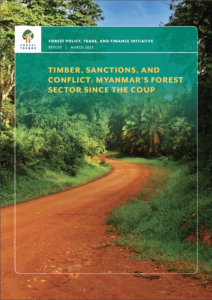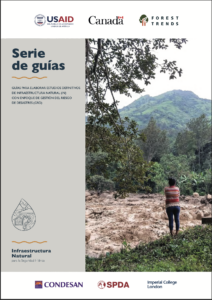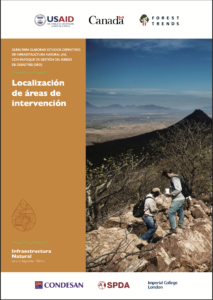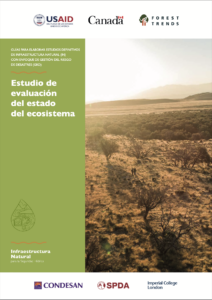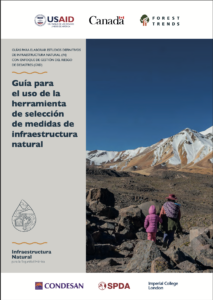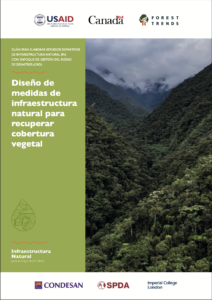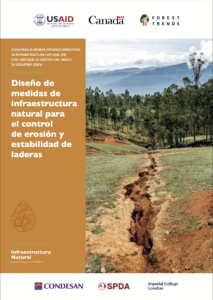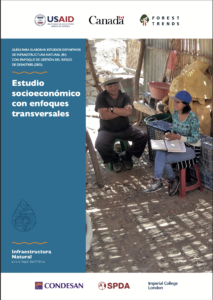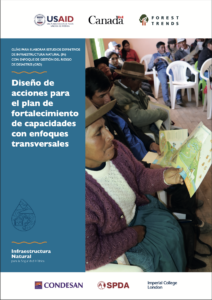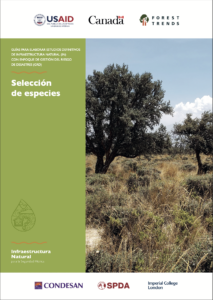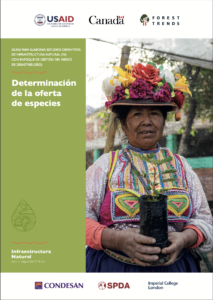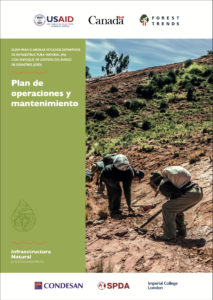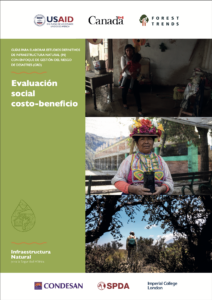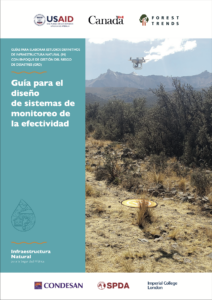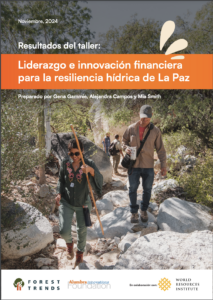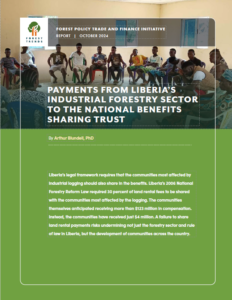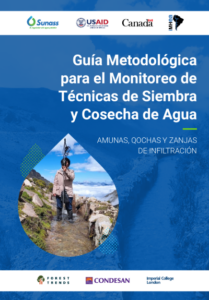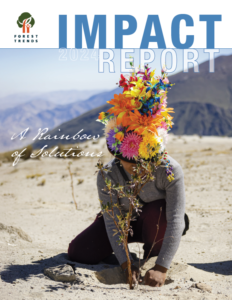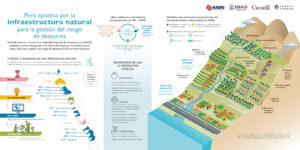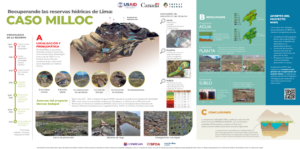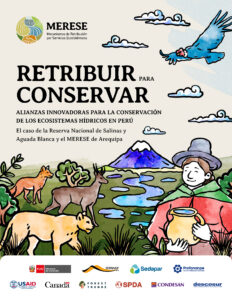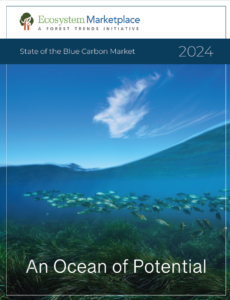Timber, Sanctions, and Conflict: Myanmar’s Forest Sector Since the Coup
By The Forest Policy, Trade, and Finance InitiativeWithin a few months of the February 2021 coup d’état against the newly re-elected Union Government of Myanmar (UGoM), the United States, United Kingdom, European Union, Switzerland, and Canada imposed targeted sanctions on Myanmar’s military leadership and associated businesses. These sanctions were further expanded over the years to include measures against the state-owned enterprises (SOEs) […]
Serie de Guías de infraestructura natural para la gestión del riesgo de desastres
Guías para elaborar estudios definitivos de infraestructura natural (IN) con enfoque de gestión del riesgo de desastres (GRD)
El Perú es un país megadiverso y altamente vulnerable al cambio climático, por lo que debe integrarse a su visión de desarrollo un enfoque de Reducción del Riesgos de Desastres de origen hidrometeorológico.Esto implica articular políticas y compromisos internacionales de Gestión del Riesgos de Desastres (GRD), fortaleciendo la resiliencia frente al cambio climático mediante acciones […]
Resultados del taller: Liderazgo e innovación financiera para la resiliencia hídrica de La Paz
By Gena Gammie, Alejandra Campos y Mia SmithLa región de La Paz enfrenta uno de los mayores desafíos hídricos en México. El clima árido y su crecimiento poblacional han provocado la sobreexplotación de los acuíferos, lo que propicia la intrusión de agua salada. Asimismo, cuando ocurren tormentas tropicales y huracanes, la región sufre intensas inundaciones, especialmente en las zonas urbanas. Frente a […]
Email Signup
Subscribe to any of Forest Trends’ mailing lists to keep up with the news, publications, and events that interest you.
Having Trouble?
If you experience any technical difficulties on our site, please contact Genevieve Bennett, Communications Manager.
Payments from Liberia’s Industrial Forestry Sector to the National Benefits Sharing Trust
By Arthur BlundellLiberia’s legal framework requires that the communities most affected by industrial logging should also share in the benefits. Accordingly, the Government of Liberia (GoL) collects land-rental fees from industrial logging operations with the intent to redistribute some to these communities. This report finds that the GoL owes nearly US$25 million to communities impacted by industrial […]
Guía Metodológica para el Monitoreo de Técnicas de Siembra y Cosecha de Agua
- amunas, qochas y zanjas de infiltración
By NIWS, SUNASSLa Guía responde a la necesidad urgente de generar conocimientos y capacidades locales para abordar los desafíos que representan la crisis climática y la inseguridad hídrica. Este documento es una herramienta esencial para profesionales, personal técnico, entidades implementadoras, tomadoras y tomadores de decisión que guardan un compromiso con la gestión sostenible del agua en la[…]
Forest Trends Impact Report 2024
A Rainbow of Solutions
Next year, we’re celebrating the 25th anniversary of Forest Trends. We find ourselves reflecting on the journey we’ve been on. In some ways, we’ve made amazing progress, and in other respects, not nearly enough. We are still living in an economic system that puts us on a dead-end path — extracting natural resources like there’s […]
Perú apuesta por la infraestructura natural para la gestión del riesgo de desastres
Infografía de Proyectos ANIN - IN para GRD
El Estado Peruano, a través de la Autoridad Nacional de Infraestructura (ANIN), gestiona la cartera más grande en la historia de proyectos de infraestructura natural (IN) para la gestión del riesgo de desastres (GRD) en América Latina. La ANIN presenta un portafolio de proyectos de IN para 17 cuencas expuestas al Fenómeno el Niño. Cuenta[…]
Recuperando las reservas hídricas de Lima: Caso Milloc
Infografía del proyecto Merese Milloc
Entre el año 2021 – 2022, la empresa de agua SEDAPAL ejecutó un proyecto para la recuperación del bofedal Milloc, de la mano con la comunidad campesina de Carampoma, en el marco de sus MERESE, el cual contó con la asistencia técnica-financiera del proyecto NIWS. Infografía presenta el proceso, avances, resultados y conclusiones del proyecto[…]
Retribuir para Conservar
Alianzas Innovadoras para la Conservación de los Ecosistemas Hídricos en Perú - El caso de la Reserva Nacional de Salinas y Aguada Blanca y el MERESE de Arequipa
La Reserva Nacional de Salinas y Aguada Blanca (RNSAB) es una de las 77 Áreas Naturales Protegidas del Perú, y ocupa prácticamente un tercio de la cuenca Quilca – Chili (26%). La RNSAB forma parte del Sistema Nacional de Áreas Naturales Protegidas por el Estado (SINANPE), fue creada en el año 1979 inicialmente para la[…]
State of the Blue Carbon Market
An Ocean of Potential
By Tundi AgardyMany countries have already catalyzed major action toward carbon emissions reductions through reducing deforestation, forest degradation, conservation, sustainable management of forests and enhancement of forest carbon stocks (REDD+). The opportunities for ocean and coastal ecosystems to complement these mitigation efforts are many and are aided by the extensive experience gained through forest carbon initiatives. However, […]

